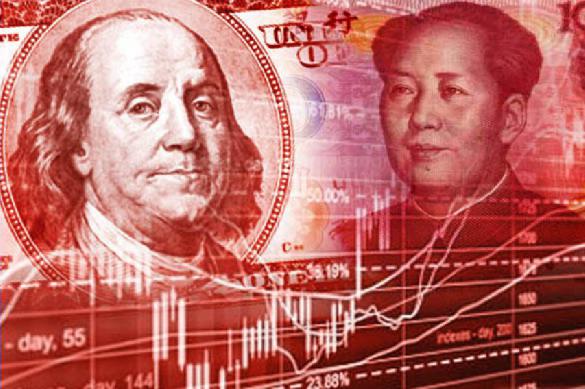China realized that the yuan urgently needed to be "internationalized" as the confrontation with the United States has been growing lately. The country will be able to do it only with the help of other countries. Does anyone want to help China?

The confrontation between the United States and China increases
US President Donald Trump, if re-elected, will consider China's steps in the international arena the biggest foreign policy challenge for Washington, US Secretary of State Michael Pompeo said on Wednesday in a video conference.
The confrontation between the world's two largest economies started in the form of trade wars. Last week, Trump signed an executive order ending Hong Kong's special status in response to Beijing's introduction of the national security law of the city. Hong Kong is thus losing the status of a currency "window to the world" for Beijing, as Washington's latest move provides for the imposition of financial sanctions on Chinese officials and banks that do business with them.
According to the South China Morning Post, Washington's decision may jeopardize Beijing's efforts to convert the yuan into an international currency.
China realizes threat to its well-being
The newspaper quoted former Zhou Li, deputy head of the International Liaison Department of the Communist Party of China, who said that it was time for China to get rid of the US dollar peg in anticipation of a full-scale standoff.
"Taking advantage of the dollar's monopoly position in the world, the United States will pose an increasingly serious threat to the further development of China," Zhou said.
However, this requires challenging the dominant role of the US dollar in the global monetary system, which rests on the economic, military, and institutional strength of the United States and reinforced by the choice of banks, traders and investors around the world. Does China have an opportunity to do this?
Hong Kong is the financial core of China
The yuan, as a global reserve currency, gained momentum after the 2008 global financial crisis. Beijing expanded the use of the yuan in cross-border trade and in the investment field, created an international payment system in yuans, signed bilateral currency swap agreements (a double transaction where after a certain period of time a partner's bank resells the same amount of currency) with nearly 40 central banks around the world, and promoted the idea of creating a super-sovereign currency based on Special Drawing Rights (SDR), which is an instrument of the International Monetary Fund.
Hong Kong, the currency of which is different from that of mainland (the Hong Kong dollar), was the first to start implementing Beijing's global plan to internationalize the yuan.
Retailers and exchange officers in Hong Kong serving tourists from the "mainland" started to accept yuans earlier than others, and the Stock Connect mechanism made it possible for foreigners to invest in stocks and bonds of "mainland" through Hong Kong, began to offer channels for investment in the "offshore" yuan (to pay for foreign trade transactions, investments, loans, as well as foreign exchange markets).
Hong Kong was a springboard for China for easy access to world markets. This is going to change dramatically because of the sanctions.
Who will help China make the yuan a reserve currency?
Tommy Wu of Oxford Economics told the South China Morning Post that China still wants to encourage the use of the yuan outside China, especially in the countries associated with the New Silk Road program, but it will not be able to attract other countries massively.
The share of the yuan currently does not exceed ten percent of the world's banking reserves, and, despite the growth of the Chinese economy, one can hardly expect this share to increase in the near future. China's alternative economic partners do not have significant cash reserves and have little significance in global trade.
The share of the yuan may grow with the help of central banks of the region - they could increase the volume of the Chinese currency in their reserves, but this will not bring them income. On the contrary, they will suffer losses, because Beijing artificially lowers the yuan exchange rate. The Bank of Russia, for example, having invested in yuan in 2019, has lost $1.8 billion as exchange rate difference.
The currency is attractive only if its issue state is resistant to financial crises. Access to financial assets that ensure convenient trade and financial transactions is also important. The coronavirus pandemic has clearly shown that China lacks financial stability. To crown it all, China has lost global access to the yuan through Hong Kong.
No comments :
Post a Comment